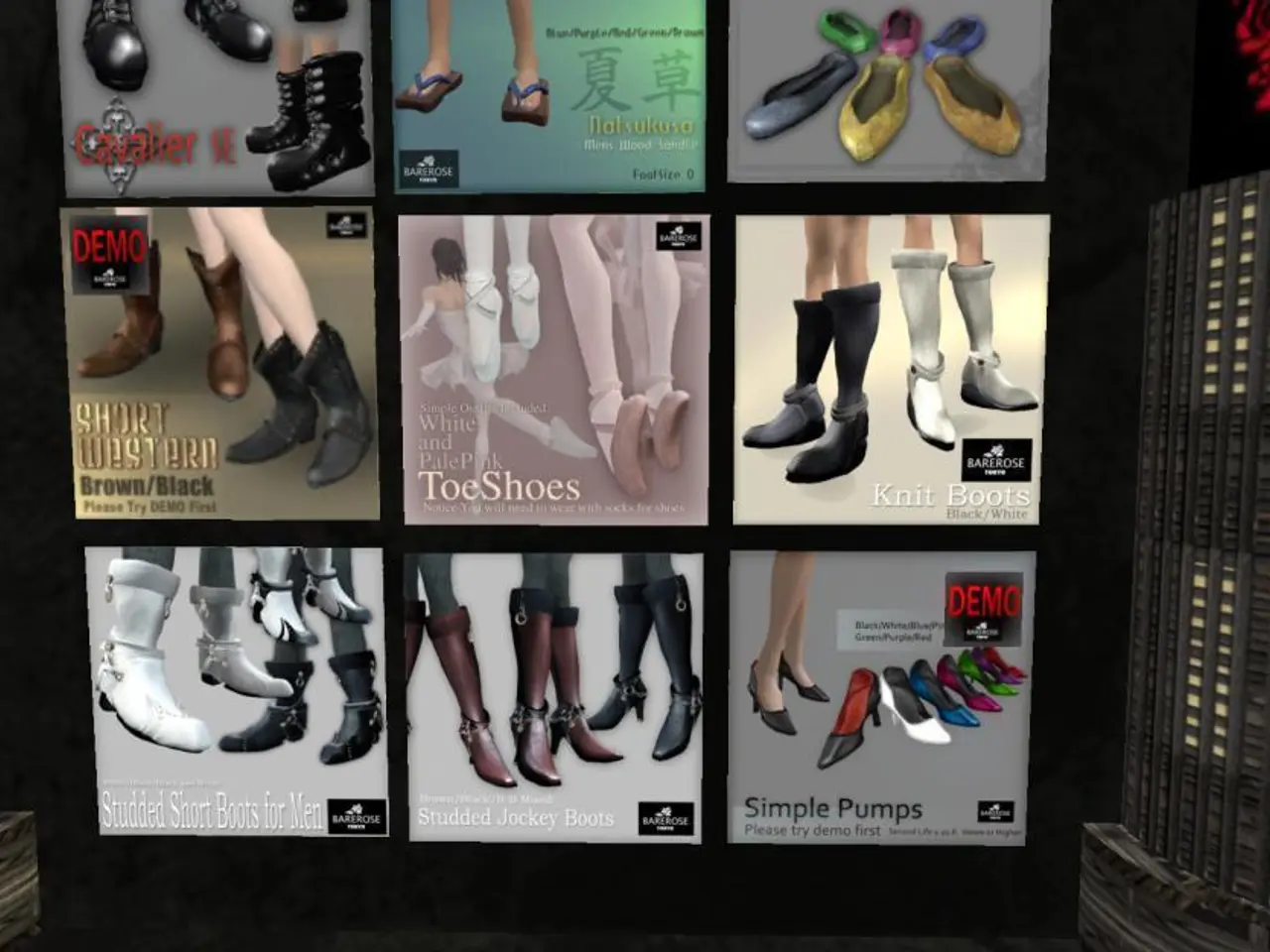A Child's Sneaker Secretly Equipped with an AirTag by a Global Brand - Now, the Largest Corporations Enable Tracking Device Insertion
In the world of technology and fashion, Skechers has made a bold move by introducing a new line of children's sneakers, dubbed "Find My Skechers," that feature a hidden slot for Apple's AirTag. This integration, while designed to enhance safety, has sparked a series of ethical and privacy discussions.
First released by Apple in 2021, AirTags are small devices designed to help people find misplaced objects. They use Bluetooth Low Energy and Ultra Wideband to communicate with nearby Apple devices. However, their implementation in children's shoes raises complex questions about privacy, consent, misuse risks, and legal boundaries.
One of the key ethical concerns is privacy and consent. Children cannot provide informed consent to being tracked, and this raises ethical questions about monitoring their whereabouts without their awareness or explicit permission. This challenge between child safety and respecting their privacy is a delicate balance that needs careful consideration.
The hidden and tamper-proof compartment in the sneakers limits a child's ability to remove the tracker, which could be seen as invasive and controlling, potentially affecting trust dynamics between parents and children.
Privacy concerns focus on the normalization of constant surveillance, data security, and legal aspects. Packaging tracking technology into children's products may normalize constant surveillance, potentially setting precedents for broader societal acceptance of tracking minors or others without full transparency.
Embedded trackers rely on Bluetooth and proximity to Apple's network for location data, raising concerns about who has access to that information and how securely it is handled. Laws regarding tracking children vary, and Apple explicitly states AirTags are for locating belongings, not people. This ambiguity can lead to legal challenges, especially when applied to minors.
Skechers developed the integration independently, targeting parents who already use AirTags for tracking other items. It's important to note that the shoes do not come with an AirTag and are not part of any official collaboration with Apple.
Apple has faced lawsuits related to stalking incidents involving AirTags and has implemented anti-stalking features in response, including alerts sent to nearby iPhones when an unknown AirTag is detected traveling with them.
The quiet normalization of embedded trackers in fashion and wearable goods is a trend privacy advocates are watching closely due to concerns about how it changes societal expectations about being monitored. Experts have cautioned that normalizing passive tracking at a young age could shape attitudes about autonomy and data privacy in the long run.
AirTags work well in urban environments but may be less reliable in isolated areas or when rapid movement is involved. The Skechers shoes, which feature a hidden slot for Apple's AirTag, may appeal to parents who want something more embedded and less likely to be forgotten or removed for monitoring their children's movements.
In summary, embedding AirTags in children’s sneakers like Skechers’ model introduces a complex trade-off between enhanced safety and risks of privacy invasion, misuse, and ethical ambiguity regarding tracking minors without their informed consent. As technology continues to evolve, it's crucial to strike a balance that prioritizes both safety and respect for privacy.
[1] Smith, A. (2021). The ethics of embedding tracking technology in children's products. The Journal of Ethics and Emerging Technologies.
[2] Johnson, K. (2021). AirTags and privacy concerns: What you need to know. Wired.
[3] Brown, L. (2021). The normalization of surveillance in children's products. The Guardian.
[4] Davis, M. (2021). The impact of embedded trackers on trust dynamics between parents and children. The Journal of Family Psychology.
- The delicate balance between child safety and privacy is a hot topic in the discussions surrounding the introduction of Skechers' "Find My Skechers" line, which includes sneakers with hidden slots for Apple's AirTag.
- The concealed and tamper-proof compartment in the sneakers raises concerns about invasiveness and potential trust issues between parents and children due to the limited ability of children to remove the tracker.
- Privacy advocates are monitoring the quiet normalization of embedded trackers in fashion and wearable goods, such as the Skechers shoes, fearing the impact on societal expectations about being monitored.
- Packaging tracking technology in children's products like Skechers sneakers could potentially normalize constant surveillance, setting legal and ethical precedents for broader societal acceptance of tracking minors without full transparency.
- In the debate over privacy and consent, the inability of children to provide informed consent to being tracked in Skechers shoes has sparked ethical questions about monitoring their whereabouts without their awareness or explicit permission.
- As technology advances, it's essential to find a balance that prioritizes both safety and respect for privacy in lifestyle products, gadgets, and fashion-and-beauty items, such as home-and-garden accessories, education-and-self-development resources, career-development tools, sports products like football and soccer gear, and personal-growth items.




